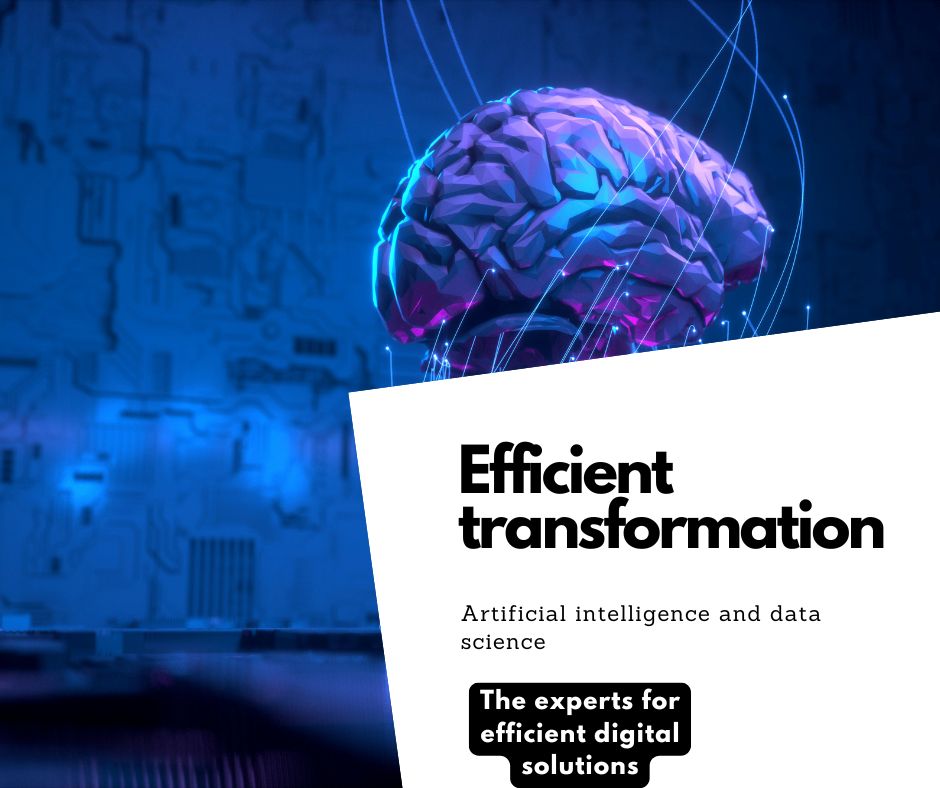The role of artificial intelligence in the digital transformation

In today’s business world, digital transformation is no longer just a trend, but a necessity. Companies of all sizes are recognizing the importance of digitalization in order to remain competitive and increase their efficiency. A crucial factor in this transformation process is artificial intelligence (AI). In this article, we look at how AI is driving digital transformation and the benefits it offers companies.
Artificial intelligence: an overview
Artificial intelligence comprises technologies that enable machines to perform human-like cognitive functions. These include machine learning, natural language processing and deep learning. These technologies not only offer the opportunity to optimize existing processes, but also to develop new business models and drive innovation.



Strategic advantages of AI in the digital transformation
Process automation and increased efficiency
The automation of repetitive tasks is one of the most fundamental applications of AI. Robotic Process Automation (RPA) often combines AI algorithms with automation to optimize processes in accounting, customer service and logistics. Reducing human error and speeding up workflows are directly linked to increasing efficiency.
Data analysis and knowledge acquisition
AI-supported data analysis enables a deeper insight into market trends and customer behavior. Predictive analytics, supported by machine learning, allows companies to make proactive decisions. This is particularly relevant when it comes to developing personalized marketing strategies or predicting the demand for products. The ability to analyze large amounts of data in real time ensures that companies make informed, strategic decisions.
Personalization through AI
At a time when customer expectations are constantly rising, the ability to offer personalized experiences is becoming a decisive competitive advantage. AI enables the segmentation of customers in real time and the customization of content and offers based on individual preferences. This not only leads to higher customer satisfaction, but also to greater customer loyalty.
Optimization of the supply chain
AI can also make a significant contribution to optimizing supply chains. Predictive analyses can be used to forecast bottlenecks and eliminate them in good time. This is particularly important in volatile markets where fluctuations in demand can quickly lead to inefficiencies. AI-supported systems can also improve inventory management by automating orders and avoiding overstocking.
Innovative business models and products
The integration of AI into the digital transformation opens up new business models. Companies can offer data-driven services based on the specific needs of their customers. This innovative strength leads to increased competitiveness and can open up new market opportunities.



Artificial intelligence is not just a technology, but a catalyst for change. It enables us to optimize processes, make data-driven decisions and develop new business models. In the digital transformation, data and AI are the key to remaining competitive and exceeding our customers’ expectations.
Till Neitzke
Challenges and best practices in the implementation of AI
However, the implementation of AI technologies also brings challenges. Professionals in the digital transformation must deal with the following aspects

Conclusion: The role of artificial intelligence in the digital transformation
Artificial intelligence is a key driver of digital transformation and offers a multitude of opportunities to increase efficiency, analyze data and drive innovation. For professionals in this field, it is crucial to understand the strategic benefits and challenges of AI in order to successfully implement it. Companies that use AI effectively will not only optimize their internal processes, but also sustainably strengthen their competitiveness in the digital age.
If you want to deepen your knowledge of AI in digital transformation or need support with implementation, contact us. Let’s find the best solutions for your company together!

Successful together in the digital transformation –
Your introductory meeting with DMG
In our introductory meeting we will discuss
- what your current challenges are in digital projects
- how other companies have done it and how you can use this to your advantage.
- what needs to be done now and whether we are the right people for the job.
[ameliastepbooking]
